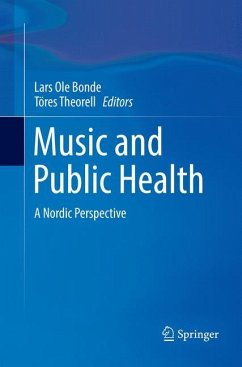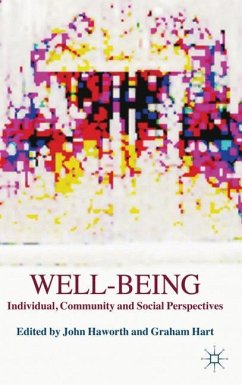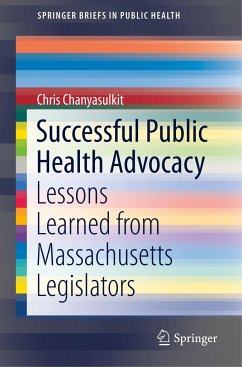
Music, Health and Wellbeing
Exploring Music for Health Equity and Social Justice
Herausgegeben: Sunderland, Naomi; Lewandowski, Natalie; Bendrups, Dan; Bartleet, Brydie-Leigh

PAYBACK Punkte
69 °P sammeln!
This book explores the power music has to address health inequalities and the social determinants of health and wellbeing. It examines music participation as a determinant of wellbeing and as a transformative tool to impact on wider social, cultural and environmental conditions. Uniquely, in this volume health and wellbeing outcomes are conceptualised on a continuum, with potential effects identified in relation to individual participants, their communities but also society at large. While arts therapy approaches have a clear place in the text, the emphasis is on music making outside of clinic...
This book explores the power music has to address health inequalities and the social determinants of health and wellbeing. It examines music participation as a determinant of wellbeing and as a transformative tool to impact on wider social, cultural and environmental conditions. Uniquely, in this volume health and wellbeing outcomes are conceptualised on a continuum, with potential effects identified in relation to individual participants, their communities but also society at large. While arts therapy approaches have a clear place in the text, the emphasis is on music making outside of clinical contexts and the broader roles musicians, music facilitators and educators can play in enhancing wellbeing in a range of settings beyond the therapy room. This innovative edited collection will be of great interest to scholars and practitioners of music, social services, medical humanities, education and the broader health field in the social and medical sciences.














